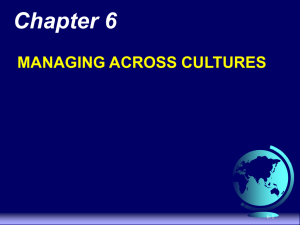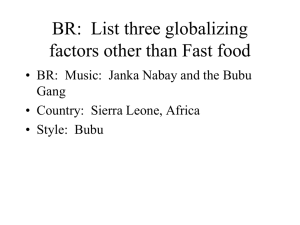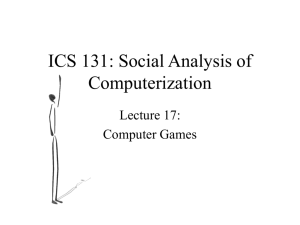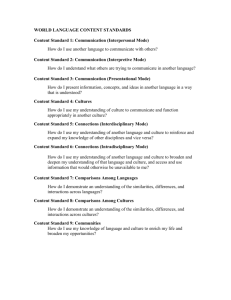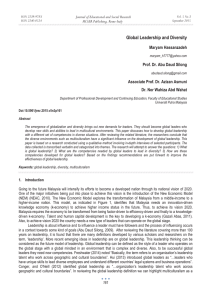Global Capitalism and Culture
advertisement
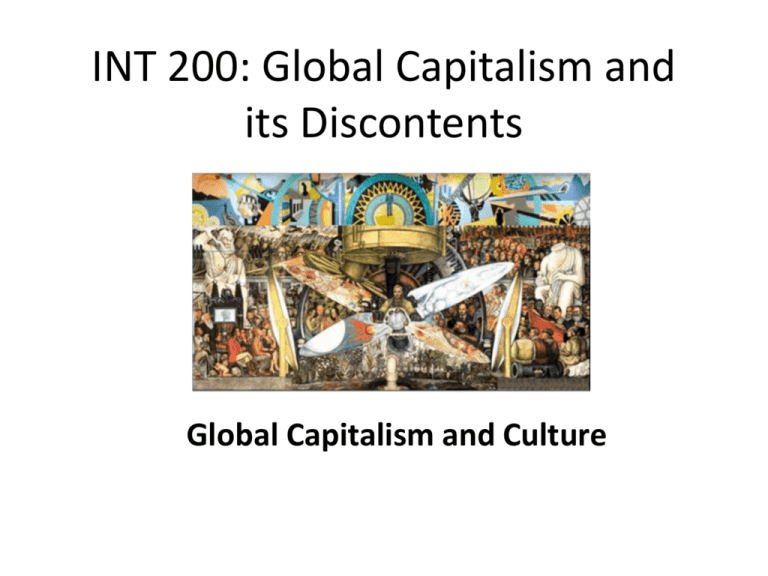
INT 200: Global Capitalism and its Discontents Global Capitalism and Culture Cultural Flows After breakfast a 100% American smokes a cigar invented in Brazil as he reads the news of the day in characters invented by the ancient Semites imprinted by a process invented in Germany on a material invented in China. As he scans the latest editorial warning of the dire results to our institutions of adopting foreign ideas, he thanks a Hebrew deity in an Indo-European tongue that he is 100 percent American. Cultural Flows • Our lives are filled with artifacts, ideas, and activities that originated in other cultures • Cultural Flows – In the last few decades TNCs, international travel, tourism, the internet, television, and immigration have sped up cultural exchanges. Cultural Flows • Cultural homogenization – blending cultures to a uniform culture that doesn’t show the trace of the diversity of the different cultures – McWorld, monoculture, airport culture, strip mall culture • Cultural appropriation – the adoption of some specific elements of one culture by a different cultural group – cultural assimilation Cultural Flows • Hybridity – the blending of cultures, but not homogenizing, modernizing, and westernizing – creolization • Glocalization – a complex interaction of the global and local characterized by cultural borrowing Cultural Flows • Cultural Imperialism – the domination of one culture over another other by a deliberate policy or by economic or technological superiority – forced acculturation of a subject population, or to the voluntary embracing of a foreign culture by individuals who do so of their own free will? – Consumerism • The need for cultural diversity? • Globalization as Americanization; 4 versions: – – – – International Business Culture (Davos Culture) Faculty Club International McWorld Evangelical Protestantism Cultural Flows • The Cultural Flows resulting from globalization are good – cross-cultural exchanges give individuals better access to cultural diversity – the markets support diversity and freedom of choice – cultural mixing improves things – a global culture would promote peace and understanding between people • The Cultural Flows resulting from Globalization are bad – supplant the local culture, causing reduction in diversity or even assimilation – the world distinctive cultures destroyed and threatening to turn the world into a global monoculture – borrowing across cultures makes things worse – while there is freedom to choose may increase, what we see is standardization and harmonization – culture is treated a business

